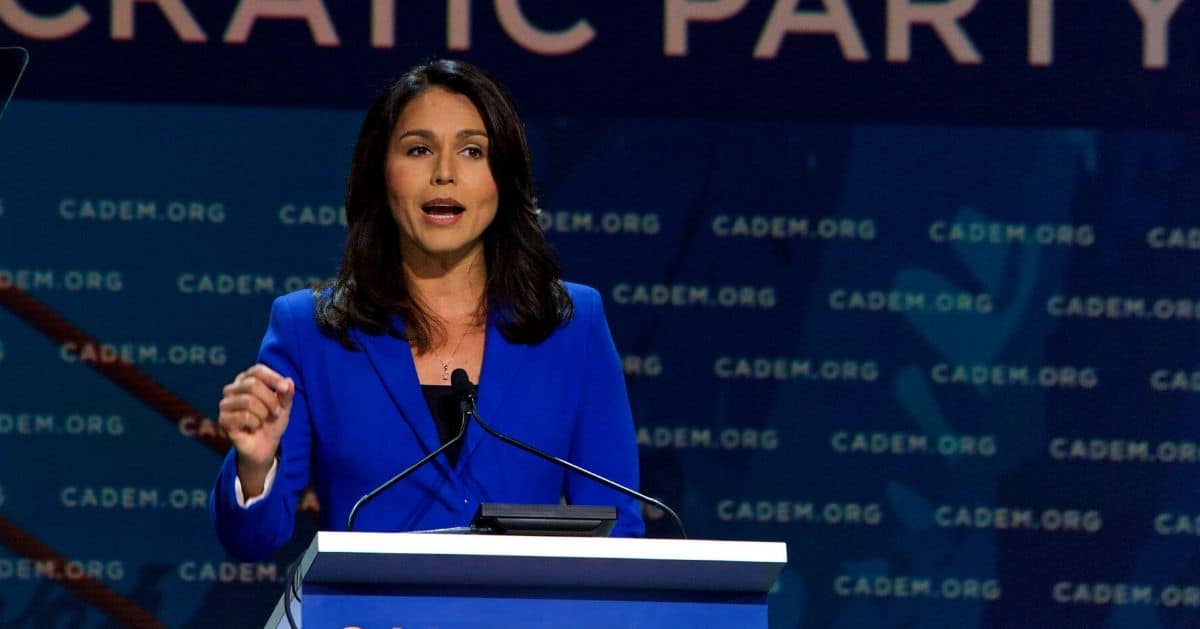






Sen. Tammy Duckworth announced she would vote "no" on all remaining Cabinet nominees of President Donald Trump, citing significant concerns over the administration's policies and actions.
The Hill reported that Duckworth, a Democrat from Illinois, has chosen to take a firm stand against President Trump's Cabinet nominations as an expression of her discontent with the administration’s course.
She, along with her Democratic colleagues in the Senate, had initially supported some nominees, such as Secretary of State Marco Rubio, at the beginning of Trump's tenure. However, the situation has since changed dramatically, leading to a political standoff.
Duckworth has reversed her voting position regarding current nominees. Her decision signifies her opposition to the nominations of individuals like Sean Duffy for Transportation Secretary and Doug Collins for Veterans Affairs Secretary.
This shift is part of a broader trend where Senate Democrats once supportive of certain nominees are now opting to oppose them as a countermeasure to the administration's agenda.
Despite Duckworth’s firm stance, the likelihood of upending the confirmation process appears slim due to the Republican majority in the Senate, which holds 53 seats. Given this advantage, the GOP is well-positioned to confirm the nominees regardless of Democratic opposition.
Duckworth’s decision aligns with a wider Democratic effort to resist the Trump administration’s policies. Deafening opposition within the Senate has seen various Democrats, such as Sen. Brian Schatz and Sen. Chris Van Hollen, pledging to obstruct State Department nominees as a tactic to delay confirmations.
A crucial element fueling this Democratic strategy is the commitment to halt President Trump's momentum. This is manifested in recent actions like the prolonged Democratic filibuster aimed at postponing the confirmation of Russell Vought as director of the Office of Management and Budget.
Senate Democratic Leader Chuck Schumer underscored the party's opposition to Vought, sparked by an OMB memo that froze federal funding abruptly.
While the White House has since retracted this controversial memo, discontent remains prevalent among Democrats due to lingering issues. These include an expansive freeze on foreign assistance and contentious decisions involving the United States Agency for International Development and the Treasury.
In a public statement released exclusively to The Hill, Duckworth expressed her resolve, saying that she would oppose top-tier Cabinet nominees until President Trump and associates cease their “illegal power grabs” that allegedly exacerbate the struggles of many Americans. She vowed to not assist in what she described as damaging moves by the administration.
Her remarks resonated beyond personal disapproval, symbolizing a broader frustration that engulfed her party. The tension is further deepened by actions that lawmakers see as transgressing normal political and democratic norms, thereby prompting urgent resistance.
Despite a mere 47 votes, including two independents caucusing with them, Senate Democrats are navigating strategic options to counter Trump’s agenda.
The nominees awaiting Senate approval could potentially affect key governmental functions, highlighting the gravity of Duckworth's announcement.
By making public her decision to oppose Trump's remaining Cabinet nominees, Duckworth has set a precedent, igniting conversations on both sides of the aisle. Her choice underlines her personal convictions and the broader Democratic disapproval of the administration’s methods.
This situation also underscores the Democrats' challenges in halting the president's initiatives during his administration.
As long as the Republican majority maintains its leverage, Democrats are likely to face difficulties in effectuating substantial alterations in the Cabinet nomination process.
Duckworth's vocal opposition starkly contrasts with her earlier stance at the beginning of Trump’s presidency. Her change of heart reflects the evolving dynamics within the Senate, where growing dissatisfaction with ongoing policies has prompted a shift in strategy among Democrats.



